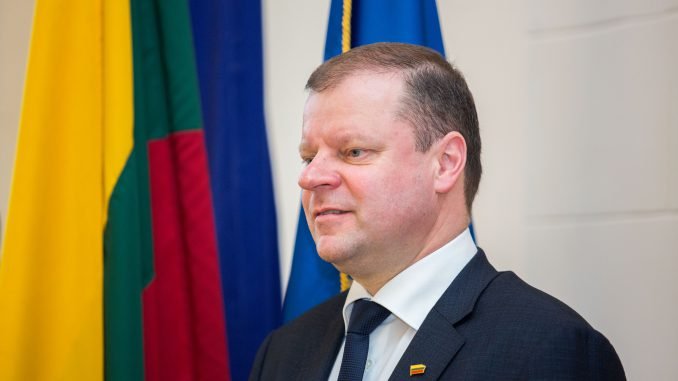
Skvernelis thinks that Germany can help make the safety of the Astravyets plant an important issue on the EU agenda and use its influence to convince Poland to join the Baltic countries in their bid to disconnect their grids from the Russian energy system.
“Germany is now one of the leaders in the European bloc and, especially after Brexit, it should become the center of leadership. (The Astravyets plant) is not just an issue between Lithuania and Belarus. It is an issue between the EU and Belarus. Given Germany’s possibilities and its influence in the European Commission and the (European Parliament), this is not just moral support. A clear message that we have to look at the economic and political ties between EU member states and Belarus through the prism of Astravyets would give a different starting point,” he told BNS.
The prime minister underlined the need for making it the Astravyets plant safety a regional problem, rather than just a problem of Lithuania, noting that the planned synchronization of the Baltic power grids with the Western European network is also very important in this context.
“If we want to actually block electricity generated by unsafe power plants in third countries, we must solve the synchronization issue. We would then be able to control and monitor from where electricity comes to the Baltic market or the European market,” he said.
The prime minister acknowledged that the synchronization project would require political decisions from the Polish side.
“Germany could support this project. Poland uses the upgrading of infrastructure in the direction of Germany as an argument. I think this project, which is backed by the European Commission, must be carried out. A failure to adopt a decision on synchronization is pushing it (the project) back. We are now speaking about 2025. If we look at an option (of synchronizing the grids) via Tallinn or Helsinki, that is another five years,” he said.
Skvernelis also plans to express concern about plans to expand the Nord Stream gas pipeline linking Russia and Germany under the Baltic Sea, a project that critics say will harm Ukraine as a transit country and will increase Europe’s dependence on Russian gas.
“We will mention this issue in that this is a project that is detrimental to the common gas market. This issue will be raised in that it is an excessive project and it brings no benefit to the EU. As far as solidarity goes, we have to look at the economic interests of the community as a whole, rather than just those of a single state, and keep in mind that energy issues are often used to advance geopolitical interests,” he said.
The Lithuanian prime minister and the German chancellor are expected to discuss the EU’s agenda and energy and security issues during their bilateral meeting on Thursday.
Skvernelis arrived in Berlin on Wednesday evening on his fourth foreign visit since he took office in December.
Skvernelis and Merkel will discuss the EU’s future amid growing concern that the bloc’s unity may be undermined by Britain’s decision to leave the bloc, Russia’s aggressive behavior, the danger of radical Islamism and uncertainty over the US foreign policies.

Be the first to comment